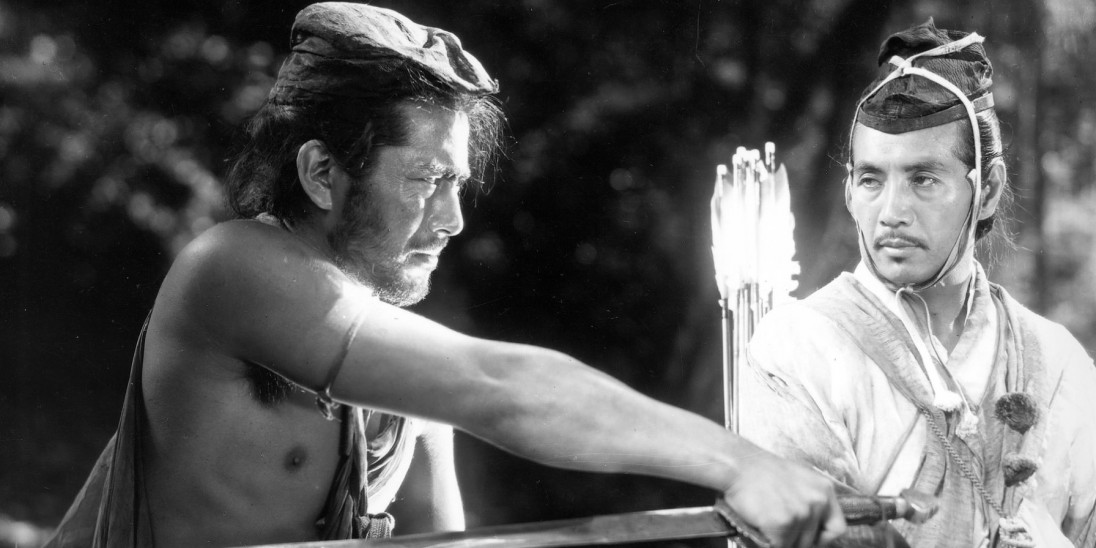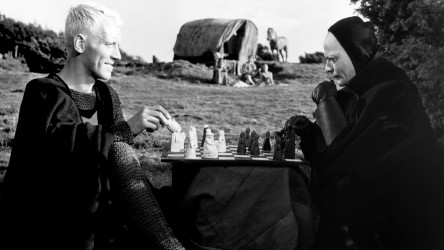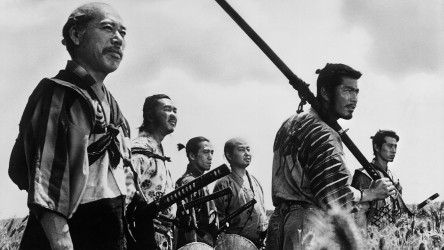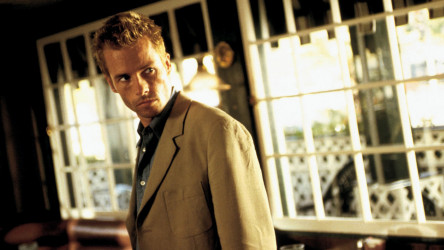Rashomon(1950)
Masterpiece set in ancient Japan about a bandit accused of killing a merchant, though there are wildly different accounts of the incident.
Certificate
Age group12+ years
Duration84 mins


I've never really seen that much of Japanese cinema at all, so starting with a film by Akira Kurosawa was probably a good place to begin. Having ranked at number 6 in Empire Magazines greatest director list and with several of his films remade into American Westerns, ('The Seven Samurai' - 1954 made into 'The Magnificent Seven' - 1960 and even his film 'The Hidden Fortress' - 1958 was a major influence and inspiration for the 'Star Wars' films) so needless to say he was one of the fathers of early cinema and definitely a director worth checking out. Looking at 'Rashomon' it's fair to say that it's one of those films that has interesting ideas and a complex yet intriguing story, but I still found myself getting slightly bored whilst watching it, especially seeing as it is quite a short film compared with some of Akira Kurosawa's but I still found it dragged and felt very slow. Needless to say that it's a film that hasn't aged the best, especially when it can be compared to Alfred Hitchcock and Frank Capra's films, both directors were situated around the same time as Kurosawa but their films have a much more modern and relatable feel to them. Having said this however, it was of course Kurosawa's intentions to make a film set around the 13th century and showing a whole other culture and way of life to that of 20th century western societ, syo naturally, it was intentionally made to feel old. The film is quite complex for it's time and was the first film ever to show the same story from multiple angles and perspectives. When a criminal is convicted for a villainous crime, three men reflect on the different stories presented at the trial and try to sum up which one holds the truth. It can be said therefore that 'Rashomon' is the first real narrative that holds a story within a story and creates what is referred to as the 'Rashomon effect' where the audience are made to see multiple versions of the same event. In this sense people can say that despite not being the most thrilling or even gripping film, it is a very inspiring one. I suppose that's really that fact can be seen as a key theme in many Kurosawas films through the way that they have inspired western cinema and film directors even up to today (particularly Quentin Tarantino with the use of samurai swords with Kill Bill Vol. 1). To sum up 'Rashomon' I would say that it's a tough one to follow and understand, (not just because it's in Japanese) but audience members do really need to have some awareness of the Japanese culture cause it is fairly different to our own. Yet perhaps it is worth sticking with because of the legacy it's created and the fact that it was the first of it's kind. Maybe not a film that appeals to everyone but still an interesting one.
Print this review
One of the most highly rated films in cinema history, The Seventh Seal is about a man trying to make sense of life in the face of death.
Certificate

This Japanese epic following the adventures of a band of samurai is one of cinema's most influential films.
Certificate

Thriller about a former insurance investigator suffering an extreme form of amnesia and trying to uncover the truth about his wife's murder.
Certificate